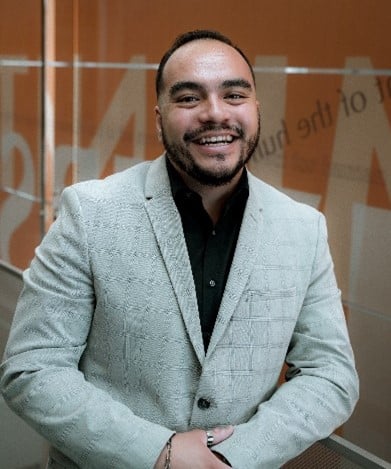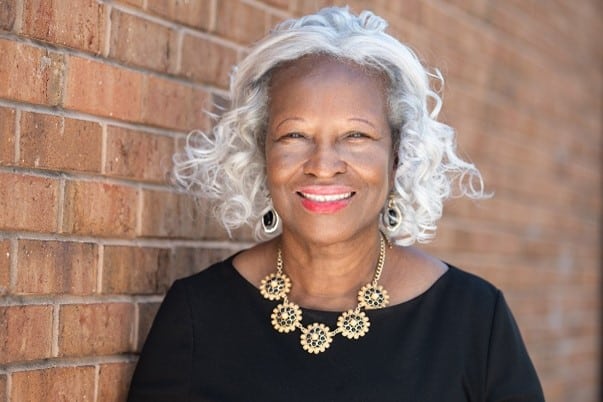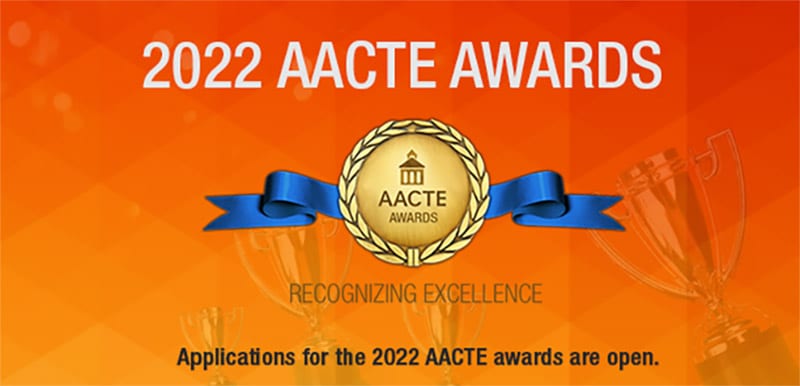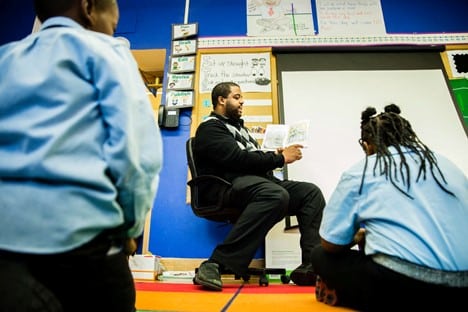06 Oct2021
By Nicole Dunn
 As of September 25, 2021, there are 11 states—Arizona, Florida, Georgia, Idaho, Iowa, New Hampshire, Oklahoma, South Carolina, Texas, Tennessee, Utah—that have passed restrictions on racial justice education in public K-12 schools. As programs that prepare educators to enter classrooms during this current onslaught of education censorship, it is imperative to ensure they are prepared to balance the harsh realities of these bills with their abilities to affirm student identities by teaching a curriculum that is a full and accurate representation of our nation’s history across disciplines.
As of September 25, 2021, there are 11 states—Arizona, Florida, Georgia, Idaho, Iowa, New Hampshire, Oklahoma, South Carolina, Texas, Tennessee, Utah—that have passed restrictions on racial justice education in public K-12 schools. As programs that prepare educators to enter classrooms during this current onslaught of education censorship, it is imperative to ensure they are prepared to balance the harsh realities of these bills with their abilities to affirm student identities by teaching a curriculum that is a full and accurate representation of our nation’s history across disciplines.
AACTE invites you to join “Black Lives Matter at School ‘Year of Purpose’” in a national day of action to #TeachTruth about structural oppression on George Floyd’s birthday, Thursday, October 14. This day of action is co-sponsored by the African American Policy Forum and is supported and endorsed by the Zinn Education Project (a project of Rethinking Schools and Teaching for Change), National Education Association, Alliance for Quality Education, NYU Metropolitan Center for Research on Equity and the Transformation of Schools, and NYC Coalition for Educational Justice.
22 Sep2021
By Weade James
 The Consortium for Research-Based and Equitable Assessments (CREA) is seeking your help to recruit teacher candidates, teachers, and faculty for its upcoming focus groups. The Consortium, which is comprised of educator preparation programs (EPPs) and state and local education agency representatives across 14 states, is examining the processes and considerations that states use to determine cut scores for entrance (i.e., Praxis Core) and teacher licensure examinations.
The Consortium for Research-Based and Equitable Assessments (CREA) is seeking your help to recruit teacher candidates, teachers, and faculty for its upcoming focus groups. The Consortium, which is comprised of educator preparation programs (EPPs) and state and local education agency representatives across 14 states, is examining the processes and considerations that states use to determine cut scores for entrance (i.e., Praxis Core) and teacher licensure examinations.
Through data collection of key stakeholders, analysis of trends and policies, and shared learning, the Consortium will produce recommendations and guidelines to establish equitable criteria for setting qualifying scores and model state policies that promote equity and diversity in the profession.
17 Sep2021
By Rangel Zarate
This article is a personal reflection of the 2021 Holmes Policy Institute by attendee Rangel Zarate.
 This year’s AACTE Holmes Policy Institute was rich with memorable discussions about culturally-relevant care, digital technology in the classroom, and equity issues in schools.
This year’s AACTE Holmes Policy Institute was rich with memorable discussions about culturally-relevant care, digital technology in the classroom, and equity issues in schools.
The year 2021 has led to an unexpected metamorphosis in education and has forced many instructors and educational leaders to rethink the way they approach student learning and their own teaching practices. In our conference panel discussion, “Advancing Educational Equity Post-COVID” AACTE staffer and associate professors at Columbia University’s Teachers College Deltra Price-Dennis and Yolanda Sealey-Ruiz invited us to reflect on our own thoughts surrounding this new culture of change in educational institutions.
01 Sep2021
By Ward Cummings
 The Ohio Department of Education recently announced the Diversifying the Education Profession Grant Awardees, 20 school districts that will work over two and a half years to implement strategies to address the diversity needs within their faculty and staff.
The Ohio Department of Education recently announced the Diversifying the Education Profession Grant Awardees, 20 school districts that will work over two and a half years to implement strategies to address the diversity needs within their faculty and staff.
According to the Ohio Department of Education, the state has significantly more minority students than minority teachers in its public schools. Ample research shows that teachers of color help students of color perform better academically, socially, and emotionally, and the benefits translate into higher test scores, increased likeliness of staying in school, and lower likeliness of chronic absences and discipline incidents.
17 Aug2021
By Carol Stinnett
This article originally appeared on the UCF Today and is reprinted with permission.
 Martha Lue Stewart, the first Black woman promoted to the rank of professor at UCF, retired on August 7. (Photo by Amy Floyd)
Martha Lue Stewart, the first Black woman promoted to the rank of professor at UCF, retired on August 7. (Photo by Amy Floyd)
If one word could encapsulate the journey that Martha Lue Stewart has had at UCF, it’s grateful. As the professor submitted grades for her final course last week and packed up the books, photos and other mementos in her office, she reminisced on countless stories.
As the first Black woman promoted to the rank of professor at UCF, Stewart has been instrumental in helping build a diverse and inclusive campus. Early on, she served as chair of the Diversity Programming Committee that organizes events like Diversity Week. Stewart was also actively involved in the Black Faculty and Staff Association, where she served as president from 1998–99. Her first service project with the association involved launching the university’s first Martin Luther King, Jr. Celebration.
“I enjoyed having a place where I could meet other colleagues of color,” she says. “It felt like a family and that’s amazing.”
17 Aug2021
By Rebecca Koenig

Graduates of Call Me MISTER: Photo by Patrick Wright, Clemson University, Photographic Services-University Relations.
This article originally appeared in EdSurge and is reprinted with permission.
When Alphonso Richard Jr. walked into his first teacher education course at Clemson University, he experienced a shock.
“Being in a class where you’re the only male, I didn’t know where to sit,” he says. “Girls were looking like, ‘Oh my goodness, is that a guy in here?’”
Compounding the confusion: Most women in the room were white, and Richard is Black. The dissonance was enough to send a shiver of doubt through the aspiring educator’s mind.
“It was a scared, hesitant feeling at first,” Richard says. “Am I meant to be here? Is this for me?”
It takes courage to enter a space where you’re not sure you belong. That’s the kind of threshold that Black men training to become educators have to cross many times. They make up only 2 percent of U.S. public school teachers (men overall compose 24 percent). They’re also underrepresented in college teacher-preparation programs, as education is “one of the least diverse major fields in higher education,” according to a 2019 report from the American Association of Colleges for Teacher Education.
20 Jul2021
By Amaya Garcia and Joseph Hood
 Minnesota is home to an increasingly racially and linguistically diverse student population, yet the diversity of the state’s teacher workforce has remained stagnant. To help address this racial and linguistic match, school districts are partnering with educator preparation programs to develop and implement Grow Your Own programs that seek to recruit and prepare community-based teachers.
Minnesota is home to an increasingly racially and linguistically diverse student population, yet the diversity of the state’s teacher workforce has remained stagnant. To help address this racial and linguistic match, school districts are partnering with educator preparation programs to develop and implement Grow Your Own programs that seek to recruit and prepare community-based teachers.
As outlined in a recent New America report, Minnesota is one of nine states in the country that offers a competitive GYO grant designed to promote teacher residency programs for adult community members and opportunities for high school students to gain exposure to teaching as a career. While the state provides funding, there are few directives about how GYO programs should be designed, reflecting the importance of local control and governance.
13 Jul2021
By Nicole Dunn

AACTE invites like-minded educators to attend the webinar, “Combating Racism in Education Prep: An Introduction to Authentic, Action-Oriented Allyship as Educators.” As part of AACTE’s Combating Racism in Educator Preparation series, this webinar is the first one produced for a “White Racial Justice” affinity group. The webinar takes place July 14 at 2:00 p.m. ET.
Who should attend?
This is an opportunity for anyone who is an educator or education advocate to learn more about and/or re-energize and re-frame the conversation on creating equitable educator preparation programs that prepare teachers to enter the nation’s schools armed with not just an understanding of how we got here, but also with strategies to be advocates for themselves and their students who may have less institutional agency.
06 Jul2021
By Jacqueline Rodriguez
This article originally appeared in Diverse Issues in Higher Education and is reprinted with permission.
Teacher diversity is invaluable for all students. Having a teacher of color at the helm of a classroom benefits all learners, both academically and through deep and enriching social emotional connections. However, according to The White House’s fact sheet for The American Families Plan, while teachers of color can have a particularly strong impact on students of color, the U.S. Bureau of Labor Statistics reports that only one in five teachers are people of color, compared to more than half of K-12 public school students. That is why President Biden is calling on Congress to invest $9 billion in American teachers, addressing shortages, improving training and supports for teachers, and boosting teacher diversity.
Why teacher diversity matters
Representation in the classroom matters. Having a diverse teacher workforce connects cultures, sets high expectations, and reduces implicit bias. Far too often, students of color feel isolated, underrepresented or mistreated, which leads to lower graduation and higher dropout rates. Decades of research has demonstrated that teachers of color can help close access and opportunity gaps for students of color while being vital to the well-being of students of all races. With a teacher of color leading a classroom, students of color see themselves represented and identify with them as role models. A diverse teacher workforce not only supports a student’s academic and social and emotional outcomes, it can lead classroom students to consider becoming educators themselves.
06 Jul2021
By Nicole Dunn
 A panel of experts who have dedicated their careers to the pursuit of equity in education will present AACTE’s first webinar produced for a “White Racial Justice” informal affinity group as part of AACTE’s in Combating Racism in Educator Preparation series. Join your like-minded peers and attend the webinar, “Combating Racism in Education Prep: An Introduction to Authentic, Action-Oriented Allyship as Educators” on July 14 at 2:00 p.m. ET.
A panel of experts who have dedicated their careers to the pursuit of equity in education will present AACTE’s first webinar produced for a “White Racial Justice” informal affinity group as part of AACTE’s in Combating Racism in Educator Preparation series. Join your like-minded peers and attend the webinar, “Combating Racism in Education Prep: An Introduction to Authentic, Action-Oriented Allyship as Educators” on July 14 at 2:00 p.m. ET.
Through the panelists’ diverse background and experiences, the presenters will introduce language, frameworks, resources, and strategies for the audience to use in their learning and reflection to be anti-racist educators and learn discussion and advocacy techniques to use in their professional and personal lives.
This is an opportunity for anyone who is an educator or education advocate to learn more about and/or re-energize and re-frame the conversation on creating equitable educator preparation programs that prepare teachers to enter the country’s schools armed with not just an understanding of how we got here, but also with strategies to be advocates for themselves and their students who may have less institutional agency.
29 Jun2021
By Nicole Dunn

You are invited to register for the upcoming BIPOC affinity webinar and White Racial Justice affinity webinar offered as part of the “AACTE Racism is Educator Preparation” series.
AACTE’s “Combating Racism is Educator Preparation Series’ began in 2021 with three specific objectives for our membership, audience, and the field at large:
- Contextualize the role of racism in structural oppression and how the education system at large maintains and promulgates these oppressive systems.
- Engage with you, our audience, to understand you and your organization’s understanding and capacity to address racism using antiracist, abolitionist, inclusive, and intersectional policies.
- Normalize and humanize critical conversations around racism within the field that will lead to collaborative action around structural oppression in education.
17 Jun2021
By Michael Rose
 AACTE will close its offices tomorrow in recognition of Juneteenth, which honors the day when Union troops arrived in Galveston Bay, Texas, to enforce the 1863 Emancipation Proclamation. Until that day, June 19, 1865, Black men, women, and children in Texas remained enslaved, despite the provisions of the Emancipation Proclamation. Juneteenth, as named by the newly freed citizens, is celebrated annually on June 19. Congress voted this week to make Juneteenth a federal holiday.
AACTE will close its offices tomorrow in recognition of Juneteenth, which honors the day when Union troops arrived in Galveston Bay, Texas, to enforce the 1863 Emancipation Proclamation. Until that day, June 19, 1865, Black men, women, and children in Texas remained enslaved, despite the provisions of the Emancipation Proclamation. Juneteenth, as named by the newly freed citizens, is celebrated annually on June 19. Congress voted this week to make Juneteenth a federal holiday.
AACTE staff pauses its work to reflect on the violence, including murder, that our Black, Latinx, Native American, Asian-American Pacific-Islander, and Transgendered populations are particularly experiencing, in addition to the long history of violence against these groups of people. AACTE condemns, in the strongest terms, this violence and invites all its colleagues to work together to create a society in which no one should fear for their lives based on the color of their skin or gender identity.
14 Jun2021
By Linda Minor
 Why wait to submit your application for the 2022 AACTE Awards? Avoid the stress of a last-minute rush and submit your entry early. AACTE Awards can be either self-nominated or nominated by a third party. To submit your nomination, visit AACTE’s online submission site.
Why wait to submit your application for the 2022 AACTE Awards? Avoid the stress of a last-minute rush and submit your entry early. AACTE Awards can be either self-nominated or nominated by a third party. To submit your nomination, visit AACTE’s online submission site.
Winning entries will be selected by AACTE’s Programmatic Advisory Committees and recognized formally at the 2022 Annual Meeting, March 4-6, in New Orleans, LA.
This is the 26th year AACTE’s awards program has been recognizing member institutions’ exemplary programs as well as individuals who have made noteworthy contributions to education preparation. For an overview of the 2021 award winners, see this press release.
08 Jun2021
By Katrina Norfleet
Last month, President Biden called for an unprecedented investment in his FY 22 budget proposal to begin to redress the chronic inequities in our nation’s education system. In a new playbook, the Partnership for the Future of Learning offers a set of high-impact strategies and examples for recruiting, preparing, developing, and retaining high-quality teachers and bringing greater racial, ethnic, and linguistic diversity to the profession.
The 152-page Teaching Profession Playbook was developed by the Learning Policy Institute and the Public Leadership Institute in collaboration with 26 organizations and five individual experts. The digital playbook includes examples of legislation; a curated list of publications, by topic, for further reading; a guide to talking about teacher shortages and strengthening the profession; and examples of research-based policies.
07 Jun2021
By Amy Carlson Gustafson

This article originally appeared on the University of St. Thomas Newsroom and is reprinted with permission.
The School of Education at St. Thomas is making inroads to increase the number of people of color who choose to become teachers, and national organizations are recognizing its efforts. In March, the school received notice that the Association of Colleges for Teacher Education (AACTE) accepted its proposal to be part of a consortium to increase equitable access to teaching.
Only around 6% of licensed Minnesota teachers identified as Black, Indigenous and people of color (BIPOC), while 38% of students in the state are nonwhite, according to state data. In efforts to help close that gap, the School of Education will join with other AACTE members to examine entrance requirements for teacher preparation programs. This collaboration exemplifies just one more way in which the school has been working to grow the number of diverse teachers through a variety of programs, including key partnerships.
 As of September 25, 2021, there are 11 states—Arizona, Florida, Georgia, Idaho, Iowa, New Hampshire, Oklahoma, South Carolina, Texas, Tennessee, Utah—that have passed restrictions on racial justice education in public K-12 schools. As programs that prepare educators to enter classrooms during this current onslaught of education censorship, it is imperative to ensure they are prepared to balance the harsh realities of these bills with their abilities to affirm student identities by teaching a curriculum that is a full and accurate representation of our nation’s history across disciplines.
As of September 25, 2021, there are 11 states—Arizona, Florida, Georgia, Idaho, Iowa, New Hampshire, Oklahoma, South Carolina, Texas, Tennessee, Utah—that have passed restrictions on racial justice education in public K-12 schools. As programs that prepare educators to enter classrooms during this current onslaught of education censorship, it is imperative to ensure they are prepared to balance the harsh realities of these bills with their abilities to affirm student identities by teaching a curriculum that is a full and accurate representation of our nation’s history across disciplines.






 The
The  This year’s AACTE Holmes Policy Institute was rich with memorable discussions about culturally-relevant care, digital technology in the classroom, and equity issues in schools.
This year’s AACTE Holmes Policy Institute was rich with memorable discussions about culturally-relevant care, digital technology in the classroom, and equity issues in schools. The Ohio Department of Education recently announced the Diversifying the Education Profession Grant Awardees,
The Ohio Department of Education recently announced the Diversifying the Education Profession Grant Awardees,  Martha Lue Stewart, the first Black woman promoted to the rank of professor at UCF, retired on August 7. (Photo by Amy Floyd)
Martha Lue Stewart, the first Black woman promoted to the rank of professor at UCF, retired on August 7. (Photo by Amy Floyd)
 Minnesota is home to an increasingly racially and linguistically diverse student population, yet the diversity of the state’s teacher workforce has
Minnesota is home to an increasingly racially and linguistically diverse student population, yet the diversity of the state’s teacher workforce has 
 AACTE will close its offices tomorrow in recognition of Juneteenth, which honors the day when Union troops arrived in Galveston Bay, Texas, to enforce the 1863 Emancipation Proclamation. Until that day, June 19, 1865, Black men, women, and children in Texas remained enslaved, despite the provisions of the Emancipation Proclamation. Juneteenth, as named by the newly freed citizens, is celebrated annually on June 19. Congress voted this week to make Juneteenth a federal holiday.
AACTE will close its offices tomorrow in recognition of Juneteenth, which honors the day when Union troops arrived in Galveston Bay, Texas, to enforce the 1863 Emancipation Proclamation. Until that day, June 19, 1865, Black men, women, and children in Texas remained enslaved, despite the provisions of the Emancipation Proclamation. Juneteenth, as named by the newly freed citizens, is celebrated annually on June 19. Congress voted this week to make Juneteenth a federal holiday. Why wait to submit your application for the 2022 AACTE Awards? Avoid the stress of a last-minute rush and submit your entry early. AACTE Awards can be either self-nominated or nominated by a third party. To submit your nomination, visit
Why wait to submit your application for the 2022 AACTE Awards? Avoid the stress of a last-minute rush and submit your entry early. AACTE Awards can be either self-nominated or nominated by a third party. To submit your nomination, visit 